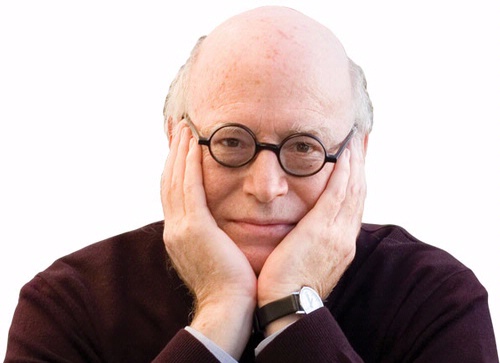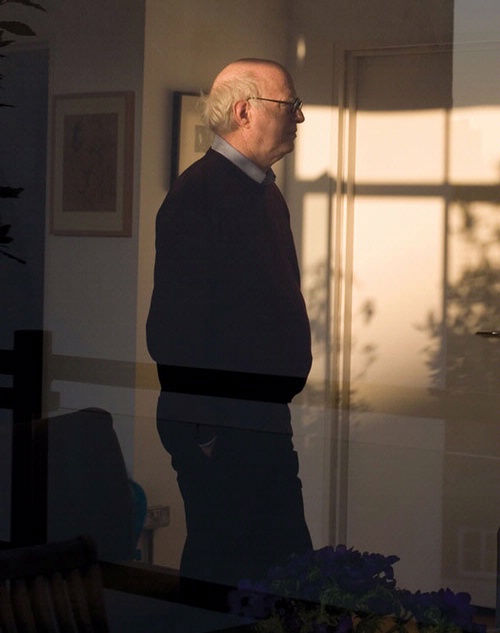From what used to be my desk in Broadcasting House but is now an anonymous “work station” I can look across the large open-plan office to Janet. For many years she’s been a researcher on a popular weekly programme and often during the day when I’m trying to think up some pleasing form of words for my radio script I find myself listening in to her telephone conversations with possible guests. She’s quite brilliant at this task. Her subtle combination of flattery and reassurance means that she rarely fails to secure a booking.
 A year or so ago Janet was to be considered for promotion. How could she fail? There was so much evidence of her skill. But clearly none of this counted because she was told after a long wait that she’d been unsuccessful. I asked a senior manager for an explanation and was told in confidence that she was rejected because she lacked “people skills”. But weren’t these just the skills she exhibited every day on the telephone? Oh no. Apparently the phrase referred to her attitude in the office. She was not, I learned, a “good team player”.
A year or so ago Janet was to be considered for promotion. How could she fail? There was so much evidence of her skill. But clearly none of this counted because she was told after a long wait that she’d been unsuccessful. I asked a senior manager for an explanation and was told in confidence that she was rejected because she lacked “people skills”. But weren’t these just the skills she exhibited every day on the telephone? Oh no. Apparently the phrase referred to her attitude in the office. She was not, I learned, a “good team player”.
My anger at the relevance of such a dubious criterion was only partly relieved when I realised that I was face-to-face with one of the essential features of the modern workplace described by Richard Sennett in his 1998 study The Corrosion of Character: The Personal Consequences of Work in the New Capitalism.
In this brilliant analysis of the ills of current work, Sennett argues that the concept of “teamwork” which is so much favoured by modern managers is in effect a fiction. It suggests that employees aren’t really competing against each other. “The fiction arises that workers and bosses aren’t antagonists; the boss instead manages group process. He or she is a ‘leader’, the most cunning word in the modern management lexicon; a leader is on your side, rather than your ruler.”
Workers like Janet are expected to play along with this fiction, to display continually that that they get along with others in the workplace. She is required to manipulate her appearance and performance in such a way as to lead others to believe she is a model of cooperation. And it’s her ability to do this – to go along with the fiction of teamwork – which determines her promotion prospects and indeed the whole of her future career. It is no longer enough to do your job well; you also have to constantly demonstrate that you possess a full set of people skills: you have to show that you are a “nice person”.
There are many other occasions when Sennett has provided me with some intellectual solace, some analytical insight. Over twenty years ago, for example, when I had found myself becoming increasingly alarmed by the manner in which the intimacy of personal lives was debilitating public life, I discovered a wholly convincing historical explanation of this development in Sennett’s magisterial The Fall of Public Man and in his deliciously paradoxical concept of “destructive gemeinschaft”. Is it any wonder, he argued, that our personal lives are so often a source of discontent? We place so much emphasis now upon our immediate friends and lovers that the relationships cannot possibly take the strain. Happiness can only be regained by correcting this imbalance, by ensuring that a large part of our life is also lived in public spaces with relative strangers. This was not simply an abstract injunction. Sennett doesn’t stop at analysis. In several other fine books since that time he has devoted his talents to describing how we might design and redesign our towns in order to encourage and facilitate just such formal interaction.
This determination to intervene, to find some way of relieving the ills of contemporary capitalism, is perhaps most evident in Sennett’s latest book, The Craftsman, which in many ways is a perfect sequel to the ills of contemporary work he chronicles in The Corrosion of Character. Craftsmanship for Sennett is “an enduring, basic human impulse, the desire to do a job well for its own sake.” But, as he shows, in today’s labour market, “doing good work is not a guarantee of good fortune. In work, as in politics, sharks and incompetents have no trouble succeeding.”
Good work, though, takes time. (Sennett suggests that 10,000 hours is a reasonable estimate of the time needed to become a skilled carpenter or musician.) It also involves contact with material and this physical relationship is, he insists, a necessary part of being human. Craftwork roots us in material reality, teaches us that making errors and overcoming resistance is not only the way to improve but also the way to secure deep inner satisfaction, to earn respect and self-worth. Sennett profoundly regrets the devaluation of skills in contemporary society and repeatedly castigates an educational system that rewards the few for their ability to tick the right boxes and leaves the rest to manage a life without respect in the best way they can. “It is”, he writes, “easy to imagine that you have to be a genius in order to become highly skilled. ... But I don’t believe this. While not everyone can become a master musician ... skill in any craftwork can be improved; there is no fixed line between the gifted few and the incompetent mass.”
Craft, insists Sennett, is as important in modern society as it ever was in the medieval guilds and it is not simply to be found in the work of such traditional craftspeople as silversmiths, carpenters and potters. It can also be seen in the scientific laboratory (the equivalent of the old workshops) or in the work of software developers.
When I interviewed Sennett about his new book on a recent edition of my radio programme Thinking Allowed, we were amazed at the level of response. Emails and letters poured in from people who described the satisfaction that they obtained from their own craft practices. But there also those who wrote to say that they regarded their own work as increasingly meaningless, as a way of making money, but not as an activity that in any way enhanced their lives. Reviews of the book were fulsome. In The Times Roger Scruton talked of the “range and boldness of the book” and in the Guardian Fiona MacCarthy praised Sennett’s “brilliance in relating the past to the present,” in showing how the satisfactions of physical making were “a necessary part of being human”.
Since Sennett came to England I’ve had the good fortune to meet and talk with him on a number of occasions, although I’ve always been a little reticent about pressing my friendship. (After all, shouldn’t I really be following his injunction and eschewing any such intimacy in favour of finding new acquaintances in public places?). But these frequent contacts did mean that when we met in his Clerkenwell flat he was happy to let the conversation drift way from The Craftsman and turn to matters of more specific interest to readers of New Humanist. It also meant that (in the presence of an American!) I could take out my cigarettes and happily puff away safe in the knowledge that at any moment Richard would pick up his pipe from the coffee table and share in my disgusting habit.
I began by asking if he’d been at all surprised by the very positive reception of his book. It was, after all, a work that poured scorn on many of our current working practices, on our concern with testing and targets, on our readiness to believe that making money was more important than the old-fashioned, rather romantic, notion of “taking pride in our work”.
He had a mixed answer. “Well, so far the book has only appeared in Germany and Britain. In Germany they were worried that it overprivileged physical labour. What about thinking? They’re still very attached to the intellectualised notion of a skill. Writing and thinking as skills. In Britain what struck me was the way it seemed to awaken in people the sense of a forgotten capacity.” People wanted to talk about the old crafts and about those who continued to practise them. This had rather ignored all he had to say about how modern craftsmanship could now be found in such places as online Linux workshops and scientific laboratories. “I think the stress I put on such technological and scientific matters is less compelling to British readers than the re-evocation of the lost paradise when people took a pride in their work.”
Sennett went on to tell me that he believes the very favourable response to his book in this country also had something to do with the way in which people were deceived in the 1990s. “They were sold a bill of goods. They were told after decades of decline that now is your chance to make money. They bought the idea but it was still somehow something they didn’t really want. The idea grew that you could make out with people skills. Tony Blair obviously exemplified this. Our conversations about him were almost entirely concerned with who he was and what he was, with him as a performer. We were given so many examples of others, like Richard Branson, who were also performers, who were selling a single brand – themselves.”
 But Sennett wants to take the argument beyond single politicians. There has been a major shift in the whole of political life. This is the first generation of politicians, he suggests, that has no experience of any other career. Up until the 1970s, many politicians had come from different professions. They had some sort of reference to the real world. But now they had become caught up in the art of “impression management”. Was it any wonder that this sort of politics commanded so little attention from the public? It was, he understood, quite normal nowadays to find virtually no one in the Strangers Gallery to watch parliamentary debates. What else could one expect?
But Sennett wants to take the argument beyond single politicians. There has been a major shift in the whole of political life. This is the first generation of politicians, he suggests, that has no experience of any other career. Up until the 1970s, many politicians had come from different professions. They had some sort of reference to the real world. But now they had become caught up in the art of “impression management”. Was it any wonder that this sort of politics commanded so little attention from the public? It was, he understood, quite normal nowadays to find virtually no one in the Strangers Gallery to watch parliamentary debates. What else could one expect?
Sennett’s dissatisfaction with the current state of politics springs directly from his belief that politics can make a difference. He has never been a pure academic. I know from my own experience that he positively cultivates those few politicians he believes he can influence. (Even if this means that he is constantly having to revise his contact list as former “hopefuls” fail to deliver on their initial concerns and promises.)
What unites his writing and his practice is the philosophy of pragmatism. He explains to me that he came to this through reading “a wonderful book” by John Dewey called Art as Experience. “It took the aura of inspiration out of the arts and went back and looked at what is actually happening. It asked whether an artist is any different in kind from a bird or a beaver building a nest or a set. The answer was ‘no’. There’s a great continuity in practical ideas.” According to Dewey art should be part of everyone’s creative lives and not just the privilege of a select group of artists.
This theme is taken up in The Craftsman, where Sennett argues that we place too much emphasis on the idea of spontaneity and originality in art and by so doing devalue its craftsmanlike qualities. “We are,” he insists, “far too riveted to this notion of inspiration, of genius, of the idea of the single lone creator, the near-madness of artistic creation. As Dewey said, it is just an ordinary activity.”
But the particular appeal of pragmatism to Sennett lies in its insistence that we address the world as we find it, that we do not have recourse to grand overarching theories about how it might or should be, or concern ourselves with looking for absolute truths. We have to start from where we are and make those interventions that improve the quality of our shared lives.
I told him that my favourite metaphorical way of describing pragmatism was to think of the present state of affairs as equivalent to being at sea on a raft. There was no way in which we could reach the absolute security of a dry dock where we might calmly examine our metaphysical presuppositions. All we could do was ensure that the raft continued to float by making running repairs, fixing this plank and then another. The analogy also reminds us that we had no alternative but to always begin in the middle of things. Knowledge grows through our attempts to push the world around. Beliefs don’t get falsified, they simply cease to be viable options.
Sennett was anxious to tell me the implications of this philosophical stance for secular humanism: “What I want to say to you is that for secularists today it’s simply not worth the candle to spend your time trying to demystify religion any more. Religion, as William James taught us, serves some kind of very primitive need in human beings. James’s view, which is a very sophisticated one, is that religion is real without being true. And the big question is; how do you deal with this reality without succumbing to debates about truth?”
However, this doesn't mean that we should simply stand back from religion. “I think we need to be pragmatic about what kinds of religious practices are likely to lead people into folly and what kinds are relatively harmless. That’s the issue for pragmatism. It’s a question, I think, of holding people to account so that the horrors of religion don’t do harm, rather than trying to convert people to a more secular point of view. Religion is a drug. It’s a drug people need. If it leads to folly then we secularists should intervene. But if it’s doing nobody any harm – what harm does prayer do? – then leave it alone. Wearing a headscarf doesn’t do anybody any harm. Forget about it. But when somebody announces that they want to Christianise the heathen masses or spread the caliphate around the world then we should intervene.”
Did that mean he had little sympathy with someone like Richard Dawkins who has devoted so much time and energy to liberating people from the tyranny of religious beliefs? I reminded Sennett of the number of people who had contacted Dawkins during and after his recent American tour and described their new readiness to espouse atheism in public as equivalent to gay liberation. They felt that they had at last been given the strength to come out of the religious closet.
“Of course I’m very sympathetic to him. He’s wonderful. Endlessly amusing. I find what he does very admirable. I guess I’m just sort of sceptical. It’s the sociologist in me. In sociology we’ve had several secularisation theses. Remember Max Weber’s notion of the increasing disenchantment of the world? But it’s all turned out not to be case. Religion is still with us. So I think we’ve got to accept that modern society isn’t headed towards this kind of secular enlightenment.”
But did this mean that we should simply sit back and allow its influence to grow? “Of course not. I think the real point is to hold in check the destructive power of religion. We do know that in the real world the consequence of finding faith is that it can unleash an enormous amount of violence. A book that made a great impact on my own thinking is a book by René Girard called Violence and the Sacred. Girard argues that religion is a way to organise violence. There is always a symbolic victim, a fall guy, and then that fall guy becomes an evil other. Very few religions would survive without such an enemy. It seems to me that this is how we should think about religion. I think Dawkins as a scientist believes in something called the truth. Pragmatists reject the idea of truth. So a crusade against the untrue makes no sense to them. Their social vision is that what we need to do is learn how to make things better. Not how we might do things right, but how we might improve life and increase happiness.”
It’s this optimism of spirit that marks Sennett out from other current chroniclers of doom and gloom. He hates capitalism with an old-fashioned socialist fervour but this is not, as it seems to be for some former radicals, a reason for quietism or fatalism. His pragmatism constantly sends him looking for practical solutions to the problems his analysis reveals. It is exactly this quality that ensures that the neat row of his books on my living-room shelf will not for long remain undisturbed.

